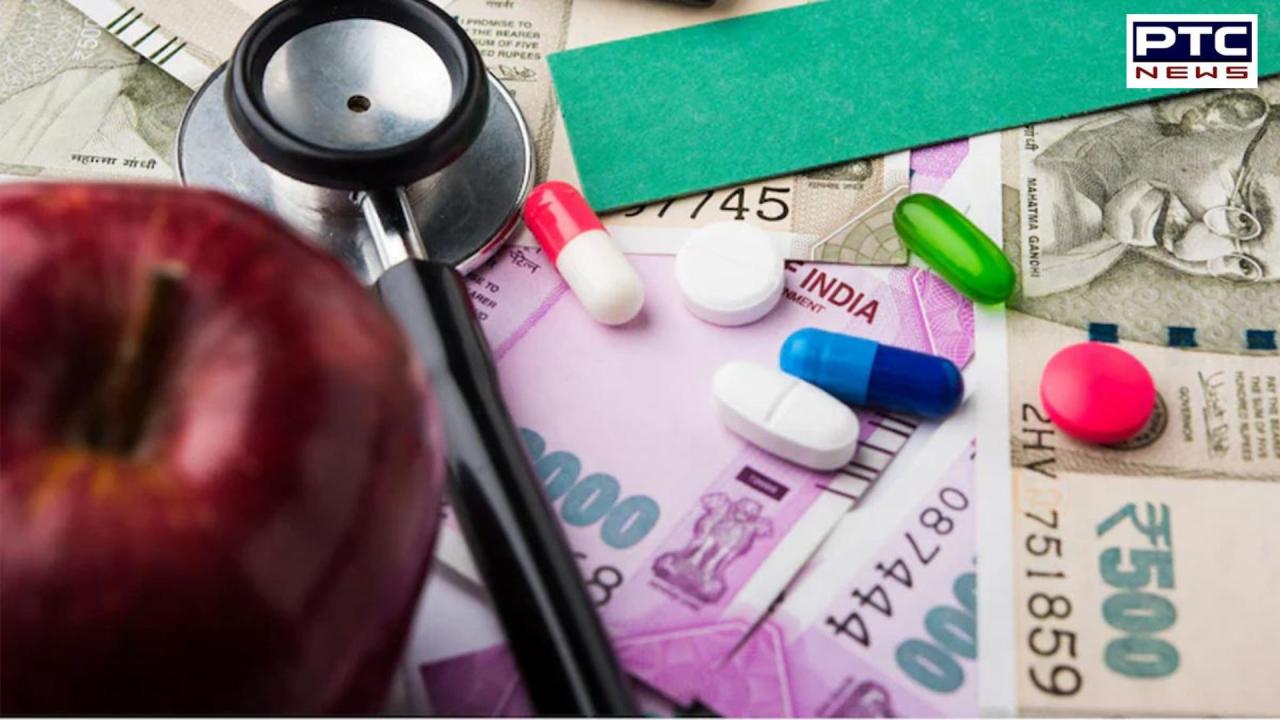
Union Budget 2024: Will Finance Minister Sitharaman boost funding for the health sector?
Union Budget 2024: It is projected that the year's budget will prioritise issues related to the healthcare industry, including accessibility, affordability, and quality of care. The healthcare sector in India has high hopes for the upcoming 2024 budget.
Data show that from 2018–19 to 2023–24, there was a steady decline in health spending as a percentage of GDP and the budget. When inflation is taken into account, this reduction becomes even more noticeable. Since 2019–20, the expenditure has only slightly increased in actual terms.
_65f44e6e5bb520601047f3c9cdc1c37a_1280X720.webp)
From 2.4 per cent of the entire budget in 2018–19 to just 1.9 per cent in 2023–24, health has received a smaller share of funding. According to the Times, the GDP portion allotted to health also decreased over that time, falling from 0.30 per cent to 0.28 per cent.
Many industry participants are pushing for more funding to be set aside for healthcare. Infrastructure development, medical research funding, and public health programmes would all be significantly impacted by such an increase. There is a general expectation that tax incentives will be introduced to improve affordability in the healthcare system. These incentives could include tax breaks for insurance firms or healthcare providers.
The FICCI Health Services Committee Chair, Dr. Harsh Mahajan, stated that the government ought to fulfil its 'promise' by allocating 2.5 per cent of GDP to the healthcare sector.
Also Read: IAS Officer Smita Sabharwals comment on disability quota sparks major criticism
"We would want the government to fulfil its promise of spending 2.5 per cent of GDP on the healthcare sector as was promised many years ago," Mahajan told news agency ANI. It is important to acknowledge that the healthcare industry not only looks after the general public's health but also creates a large number of jobs. Therefore, boosting government spending on healthcare will contribute to both a healthier society and the achievement of the five trillion dollar economy goal."
The Union Budget 2024–25 is a critical budgetary period for the healthcare industry in India. Extending the Rs 64,180 crores allotted in 2023–24 for healthcare companies under the Pradhan Mantri Atmanirbhar Swasth Bharat Yojana, we require further tax breaks and funding to spur innovation in this sector. According to Dr. Sravani Reddy G, Founder & CEO of Soprav Healthcare Consulting, "significant investments in digital health infrastructure, particularly AI, will improve patient outcomes and operational efficiency."
India's healthcare system is poised for greatness. Treating unusual patient conditions, robotic surgery, and the growing need of AI for precise diagnosis are all receiving more attention. In order to go to the next stage, innovation, R&D, and infrastructure development must be prioritised. These lay the groundwork for India's healthcare system to attain universal access to treatment at an international standard, says Joseph Pasangha, Group COO of Bengaluru's SPARSH Hospital.
Also Read: Jammu and Kashmir: Terrorists attack Army camp in Rajouri, forces launch massive operation
"As of right now, only a few iron chelators, Deferoxamine and Deferiprone, for thalassemia patients currently fall under the 5 per cent GST slab," stated Anubha Taneja Mukherjee, Member Secretary, Thalassemia Patients Advocacy Group. Although we are immensely appreciative of the lower GST slab on these medications, Thalassemia patients are not greatly benefited by it because they also require additional life-saving medications and equipment on a permanent basis. These are subject to a higher 12 percent GST slab."
She went on to say, "The new tax regime that was recently implemented has eliminated the relative benefit of extra tax relief under Section 80U for people with disabilities (PwD), including those with thalassemia, who face high treatment costs and limited opportunities in society. In order to minimise treatment costs, we would like to call attention to the necessity of a GST reduction or waiver, as applicable, on the life-saving medications and supplies listed below that are used in the treatment of thalassemia."
Also Read: The Untold Story Behind Sanjeeda Sheikh and Aamir Ali's Divorce Revealed
- With inputs from agencies
